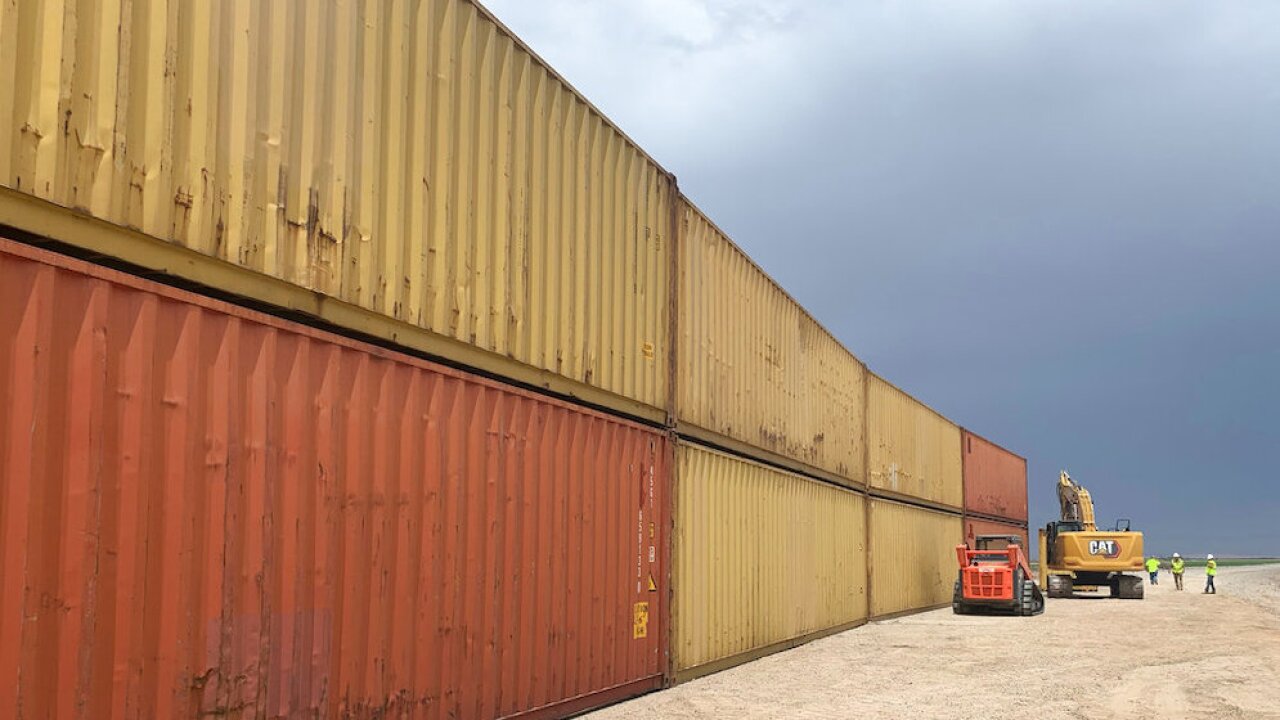Outgoing Arizona Gov. Ducey piles shipping containers at Mexican border as he prepares to leave office


A free daily email with the biggest news stories of the day – and the best features from TheWeek.com
You are now subscribed
Your newsletter sign-up was successful
Arizona GOP Gov. Doug Ducey will soon be leaving office, but he is making his mark by having stacks of shipping containers placed along his state's border with Mexico, The Associated Press reported Sunday.
The move was described by AP as "a bold show of border enforcement" by the outgoing governor. The containers, doubly stacked and topped with razor wire, are part of Ducey's efforts to highlight issues at the country's southern border. "Arizona is going to do the job that Joe Biden refuses to do — secure the border in any way we can," Ducey said.
However, environmental agencies have expressed concerns that the containers could halt the flow of natural water in the area and cause lasting damage. These concerns were echoed by the federal government, which has called the placement of the containers illegal and has ordered it to stop, despite Ducey's insistence that he has jurisdiction over the land.
The Week
Escape your echo chamber. Get the facts behind the news, plus analysis from multiple perspectives.

Sign up for The Week's Free Newsletters
From our morning news briefing to a weekly Good News Newsletter, get the best of The Week delivered directly to your inbox.
From our morning news briefing to a weekly Good News Newsletter, get the best of The Week delivered directly to your inbox.
Ducey responded to the government's order by filing a lawsuit, alleging that he has the right as governor to take action. As the controversy heats up, even some conservative outlets have reported negatively on the issue, with Fox News reporting that Santa Cruz County Sheriff David Hathaway has expressed frustration at Ducey's agenda.
Ineligible to run for another term, Ducey will leave office in January. His replacement, Democratic Gov.-elect Katie Hobbs, said she was "looking at all the options" regarding the containers and hadn't decided on a course of action yet, AP reports.
A free daily email with the biggest news stories of the day – and the best features from TheWeek.com
Justin Klawans has worked as a staff writer at The Week since 2022. He began his career covering local news before joining Newsweek as a breaking news reporter, where he wrote about politics, national and global affairs, business, crime, sports, film, television and other news. Justin has also freelanced for outlets including Collider and United Press International.
